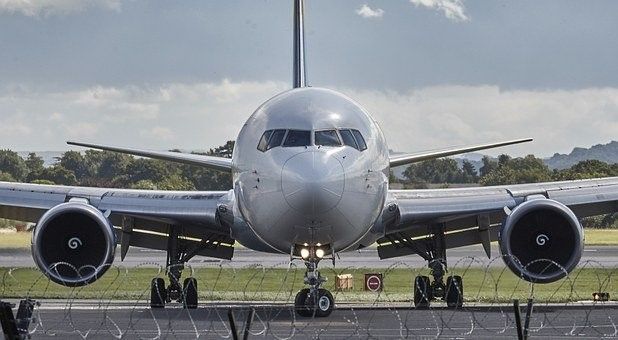Azul and Gol shares rose sharply on Thursday, following the announcement of a proposed merger between the two Brazilian airlines.
Azul’s stock price rose by more than 4%, while Gol’s shares jumped by about 8%.
This bullish market trend is regarded as an indication of investor confidence in the proposed merger of the two Brazilian airlines.
Azul and Gol deal
The Abra company, which owns Gol and Avianca, said that it has entered into a memorandum of understanding with Azul Airlines, causing stock prices to rise.
The memorandum outlines the beginning conversations aimed at merging two companies.
If approved, this merger will completely transform the Brazilian airline industry, as the new airline company would control around 60% of the domestic market, eclipsing Latam, which currently has less than 40%, according to the National Civil Aviation Agency (ANAC).
In a statement to investors, Gol emphasized that the agreement is only the beginning of a discussion process to determine the feasibility of a potential transaction.
During the negotiation process, both airlines reiterated their commitment to preserving their distinct names, as well as the functioning of their respective brands and operational certificates.
Azul indicated in its previous investor conference that this combination would not only increase customer choice but would also lower expenses, allowing them to grow and provide better services throughout the firm.
According to the company, such a transaction would result in the formation of a new entity that would develop and expand air travel in Brazil through a network that would serve most destinations in the country with a flexible fleet focused on giving the finest service.
The merger may be subject to certain conditions.
According to the agreement of intent, the merger is contingent on the successful completion of Gol’s ongoing Chapter 11 procedure, as well as other requisite settlement negotiations and clearances.
Both airlines have faced significant financial challenges
Azul has been negotiating to pay off some of its financial debts while simultaneously seeking additional financing to secure its positions.
In contrast, Gol filed for Chapter 11 bankruptcy protection in the United States, which is a legal process that allows businesses to reorganize while continuing to operate. The process in the United States is similar to judicial recovery in Brazil.
In terms of stakeholders, Gol has stressed its goal of overcoming critical challenges during Chapter 11. The corporation appears to be working on repositioning itself as a more sustainable, independent, and financially solid entity.
Azul and Gol deal: market reaction
According to the local media g1, the first response from investors has been overwhelmingly positive, indicating a desire for more consolidation in Brazil’s high-pressure aviation business.
Industry watchers regard the impending merger as a logical step toward developing a long-term airline capable of weathering the economic storm exacerbated by the pandemic.
However, if the alliance succeeds, it may encompass both the benefits and flaws of future aviation rivalry.
Regulatory authority and control are expected to be in place throughout merger discussions, as the authorities will assess the impact of such a large-scale combination on consumer choice and market dynamics.
If the merger goes through, it has the potential to cause a significant shift in Brazilian air travel, with improved service, larger networks, and a stronger position against international competitors.
Brazil’s economic activity surpasses expectations
In other news, Brazil’s economy strengthened in November, with official data revealing that activity slightly exceeded market expectations.
The IBC-Br index, a crucial leading indicator of GDP, increased by 0.1% seasonally adjusted from October.
This increase occurred despite many economists expecting no changes, highlighting the surprising strength of Brazil’s economy in the aftermath of the tightly controlled central bank’s ongoing monetary policy modifications.
On a non-seasonally adjusted basis, the IBC-Br index increased by 4.1% compared to the same month in 2022, indicating a strong overall performance.
Furthermore, throughout the past twelve months, the index recorded a healthy growth rate of 3.6%.
These numbers strongly imply that the overall economic recovery is in full blossom which potentially signals a bright future for Brazil.
Finance Minister Fernando Haddad has pointed this out by declaring the birth of a new hope stating that the largest economy in Latin America may catch up to the European state in terms of growth by 3.6% in 2024.
The post Azul and Gol stocks surge on potential merger talks: what investors should know appeared first on Invezz

